Members Login

Channels
Special Offers & Promotions
Dolomite
Products
Contact Dolomite
All articles from Dolomite
Dolomite Bio launches Nadia Go - An affordable microfluidic system for custom protocol development
Sep 22, 2022
Dolomite Bio releases hydrogel reagent kits for agarose encapsulation and 3D cell culture research
Jun 29, 2022
Dolomite Bio launches new RNAdia kit, breaking down cost barriers for single cell research
Sep 29, 2021
Microfluidics enables reliable siRNA drug delivery for inflammatory diseases and tumor targeting
Jun 10, 2020
Dolomite Bio Maintains Rapid Growth Trajectory and Launches Novel Products throughout 2018
Jan 18, 2019
Dolomite and Lab on a Chip Launch Video Competition to Win $2,500 of Microfluidic Equipment
Oct 13, 2014
Dolomite Launch Meros TCU-100 Temperature Controller at Lab-on-a-Chip & Microarray World Congress
Sep 30, 2014
Dolomite launches new Electro-osmotic Pumps for fast and easy integration into microfluidic systems
Dec 6, 2012
Dolomite launches the new Porous Media Chip providing rapid advances in petro-chemical research
Nov 13, 2012
Dolomite announces microdroplet IP licence arrangements with Japan Science and Technology Agency
Aug 23, 2012
Dolomite introduces closed-loop control of micro-scale flow rates using pressure for pulse free performance
Jul 9, 2012
Dolomite launches new competition offering the chance to productize scientific discoveries
Jun 15, 2012
Dolomite launches new microfluidic interface for quick and reliable PDMS chip connection
Jun 13, 2012
Microfluidic expert Dolomite launches novel surface coating agent for improved droplet microfluidics
Mar 27, 2012
Dolomite launches novel microfluidic device for advanced cell immobilization and observation
Dec 7, 2011
Dolomite and Clearbridge BioMedics develop revolutionary instrument for cancer detection
Nov 23, 2011
Dolomite launches new Interface providing single, fast and reliable multi-way connection between individual tubing
Aug 31, 2011
New Syringe-based Droplet Starter System enables high throughput droplet experimentations
Jul 21, 2010
Dolomite and Emerald BioSystems collaborate to produce award winning novel protein crystallography instrument
Jan 31, 2010
Media Partners


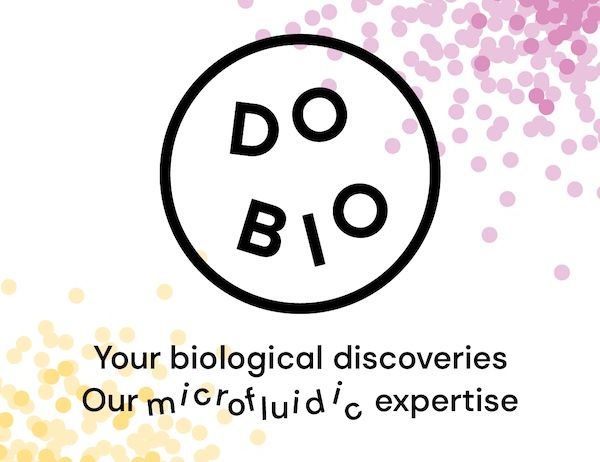 Dolomite Bio launches new website, with exciting re brand with a new name and focus. The motivation behind the company’s name change to Do Bio reflects their evolution within the microfluidic, biology and life science space. The expertise behind Do Bio’s technology is built on a strong foundation in the field of microfluidics. As the company has grown in recent years, the focus has shifted from purely single cell based applications, to developing and supporting multiple microfluidics based products for life sciences and pharmaceuticals...
Dolomite Bio launches new website, with exciting re brand with a new name and focus. The motivation behind the company’s name change to Do Bio reflects their evolution within the microfluidic, biology and life science space. The expertise behind Do Bio’s technology is built on a strong foundation in the field of microfluidics. As the company has grown in recent years, the focus has shifted from purely single cell based applications, to developing and supporting multiple microfluidics based products for life sciences and pharmaceuticals...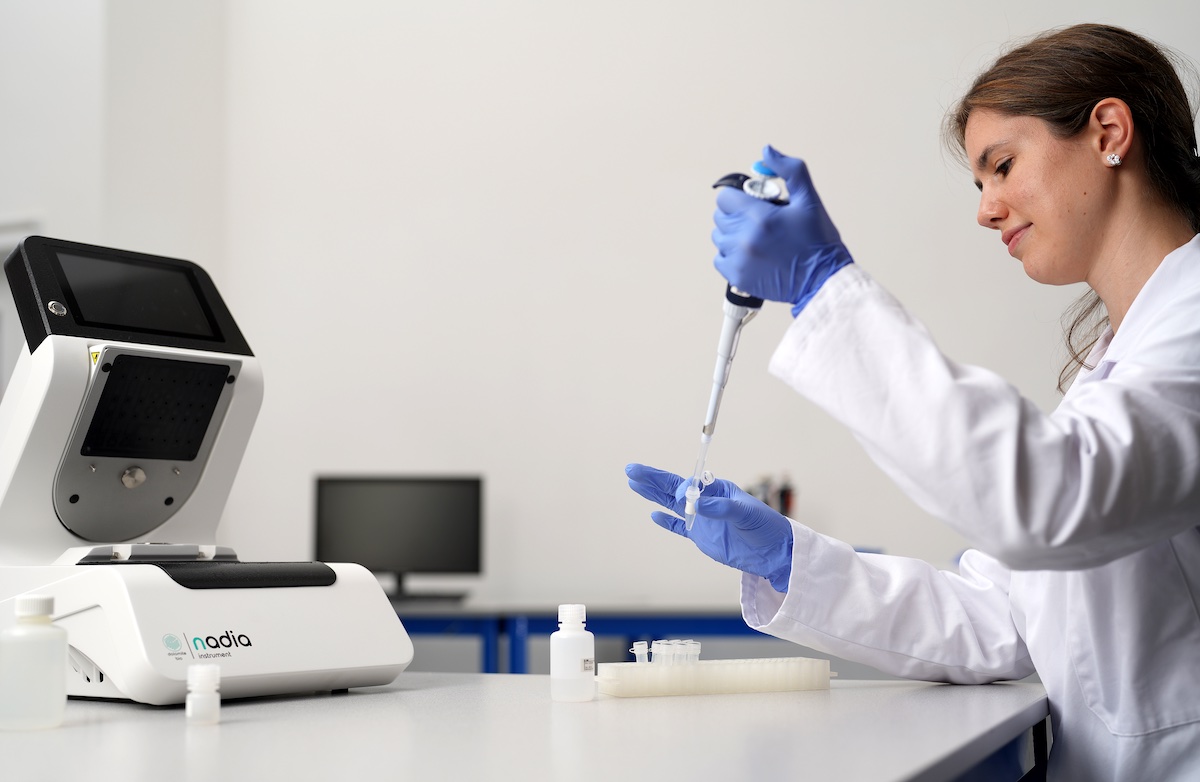 Dolomite Bio launches the RNAdia 2.0 reagent kit for single cell research, as part of their complete workflow, encompassing everything from sample preparation to bioinformatic analysis. Most researchers will be familiar with the frustrations of sourcing reagents, which wastes precious time when performing a standardized single cell workflow. At a significantly lower cost compared to competitor reagents the new and improved RNAdia 2.0 kit alleviates that stress, allowing researchers to focus on what is important...
Dolomite Bio launches the RNAdia 2.0 reagent kit for single cell research, as part of their complete workflow, encompassing everything from sample preparation to bioinformatic analysis. Most researchers will be familiar with the frustrations of sourcing reagents, which wastes precious time when performing a standardized single cell workflow. At a significantly lower cost compared to competitor reagents the new and improved RNAdia 2.0 kit alleviates that stress, allowing researchers to focus on what is important...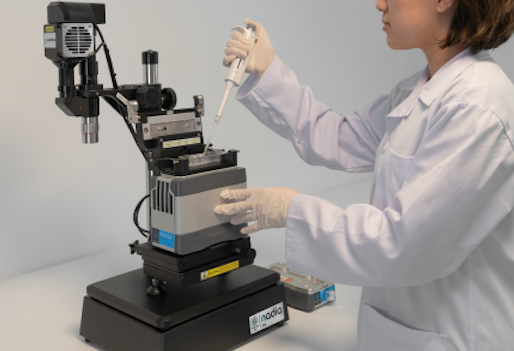 A compact, affordable microfluidic system for custom microfluidic and genomics research. This new system from Dolomite Bio, combines the microfluidic technology underlying their Nadia Instrument, with the customisable parameters of the Nadia Innovate, granting access to the custom microfluidic protocol development without the necessity of large capital outlay...
A compact, affordable microfluidic system for custom microfluidic and genomics research. This new system from Dolomite Bio, combines the microfluidic technology underlying their Nadia Instrument, with the customisable parameters of the Nadia Innovate, granting access to the custom microfluidic protocol development without the necessity of large capital outlay...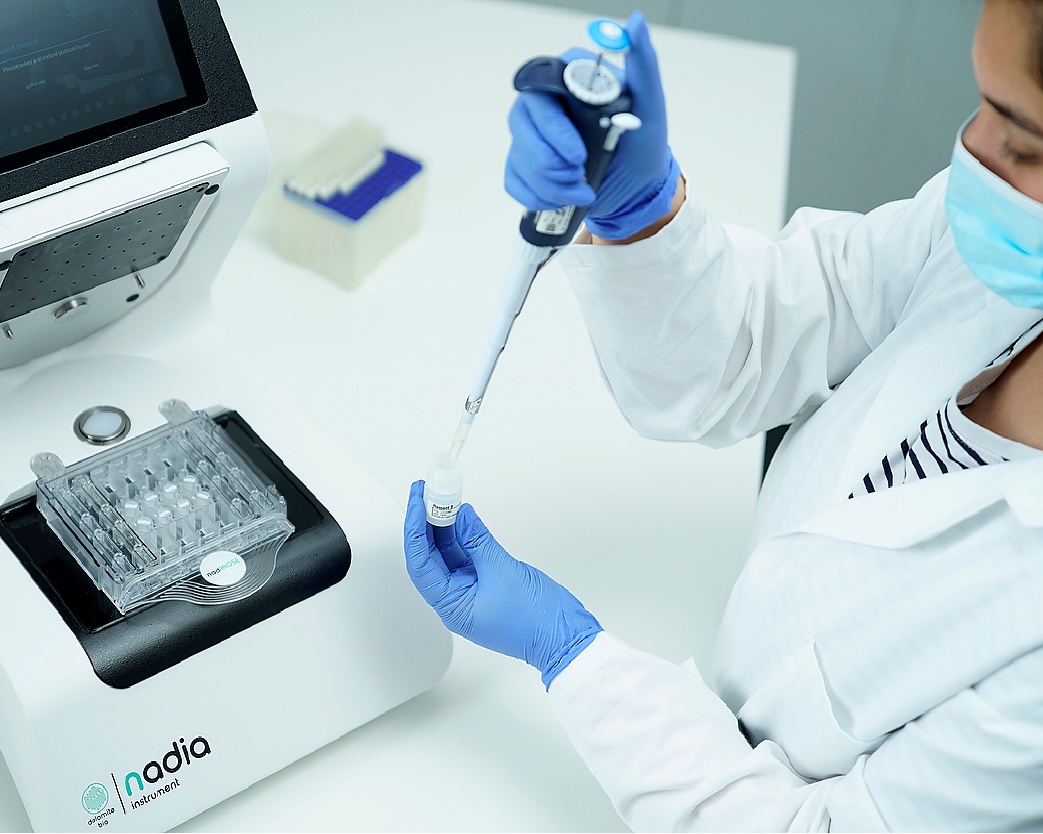 Current methods for constructing hydrogel scaffolds involve costly, time consuming, ‘home brew’ batch methods, with few commercially available solutions. For this reason, Dolomite Bio is launching the nadAROSE kit for the encapsulation of cells in agarose and the nadia3D kit for 3D cell culture research. Both kits are complete, standardised, and reliable solutions, containing all the single use, prefabricated consumables needed for scaffold production on the Nadia Instrument....
Current methods for constructing hydrogel scaffolds involve costly, time consuming, ‘home brew’ batch methods, with few commercially available solutions. For this reason, Dolomite Bio is launching the nadAROSE kit for the encapsulation of cells in agarose and the nadia3D kit for 3D cell culture research. Both kits are complete, standardised, and reliable solutions, containing all the single use, prefabricated consumables needed for scaffold production on the Nadia Instrument.... Following the recent launch of Dolomite Bio’s RNAdia kit for single cell research. Dolomite Bio is now launching a Bioinformatics Service, which can be purchased alongside the kit as simply as if you were buying reagents. With upfront costs, allowing for easy forecasting, cost-effective and hassle-free single cell RNA-Sequencing. Data analysis is an essential part of single cell research, but it isn’t always possible to have bioinformatic capabilities in house...
Following the recent launch of Dolomite Bio’s RNAdia kit for single cell research. Dolomite Bio is now launching a Bioinformatics Service, which can be purchased alongside the kit as simply as if you were buying reagents. With upfront costs, allowing for easy forecasting, cost-effective and hassle-free single cell RNA-Sequencing. Data analysis is an essential part of single cell research, but it isn’t always possible to have bioinformatic capabilities in house...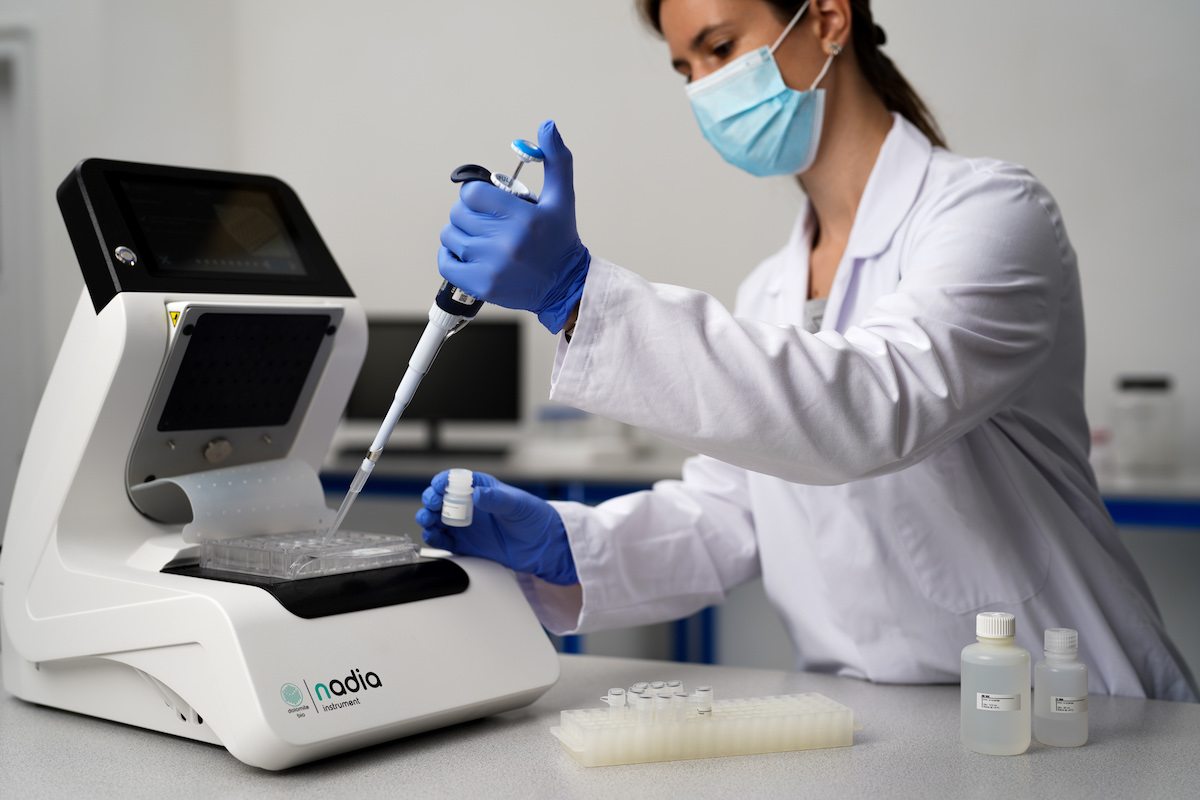 Dolomite Bio is leading the way towards affordable single cell research with the release of the new RNAdia kit. This new kit gives researchers the same reliable, world leading results, at 50% of the cost of competitor reagents. Together with the Nadia platform, the RNAdia kit offers a high quality, low cost, complete solution for single cell RNA-Sequencing...
Dolomite Bio is leading the way towards affordable single cell research with the release of the new RNAdia kit. This new kit gives researchers the same reliable, world leading results, at 50% of the cost of competitor reagents. Together with the Nadia platform, the RNAdia kit offers a high quality, low cost, complete solution for single cell RNA-Sequencing...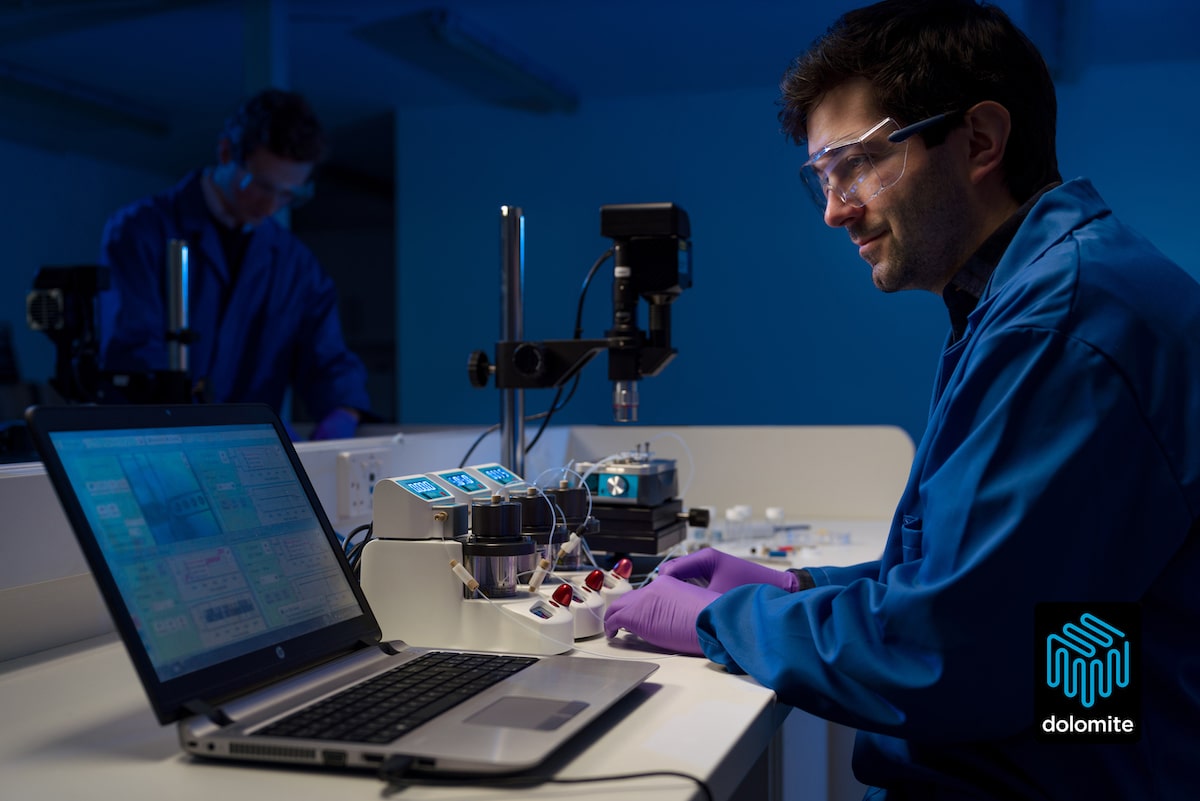 Researchers at Queen's University Belfast are using microfluidics to fabricate particles for the encapsulation of drugs and biologics for imaging, treatment and cell targeting. Dr Dimitrios Lamprou, a Reader in Pharmaceutical Engineering at the School of Pharmacy, explained: “Our work involves the microfluidic preparation of lipid (liposome) and polymer-based (PLGA) nanoparticles that can efficiently encapsulate cancer drugs...
Researchers at Queen's University Belfast are using microfluidics to fabricate particles for the encapsulation of drugs and biologics for imaging, treatment and cell targeting. Dr Dimitrios Lamprou, a Reader in Pharmaceutical Engineering at the School of Pharmacy, explained: “Our work involves the microfluidic preparation of lipid (liposome) and polymer-based (PLGA) nanoparticles that can efficiently encapsulate cancer drugs...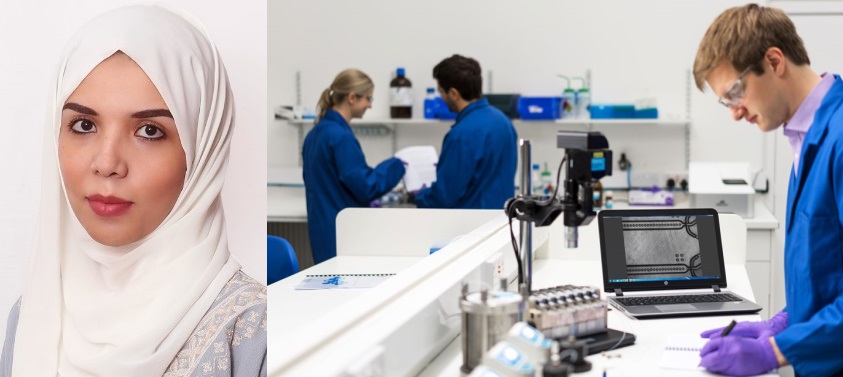 Microfluidic technologies are rapidly becoming the method of choice for micro- and nanoparticle production across a number of sectors, from cell biology research to drug development. This approach offers a number of advantages over traditional batch methods, including precise process control, enhanced reliability, and the ability to easily scale up production...
Microfluidic technologies are rapidly becoming the method of choice for micro- and nanoparticle production across a number of sectors, from cell biology research to drug development. This approach offers a number of advantages over traditional batch methods, including precise process control, enhanced reliability, and the ability to easily scale up production...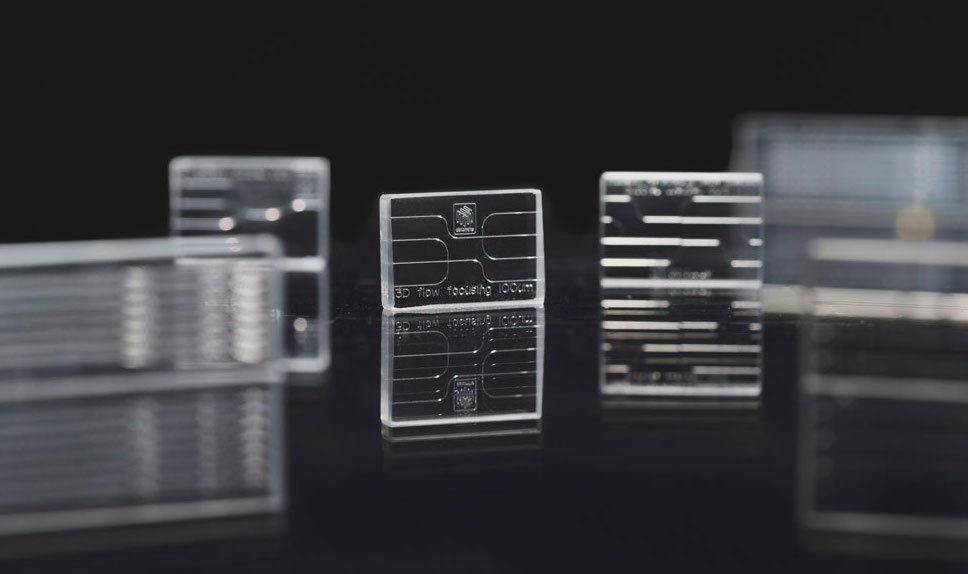 Poly(lactic-co-glycolic acid) (PLGA) is a polymer with broad utility, often used for the manufacture of highly monodisperse beads for controlled drug release and targeted drug delivery. Using microfluidic chips – such as those from Dolomite Microfluidics – to produce the beads provides the necessary precise regulation of bead size distribution, a factor that is of critical importance and can have a significant effect on the rate of drug release, as well as other features...
Poly(lactic-co-glycolic acid) (PLGA) is a polymer with broad utility, often used for the manufacture of highly monodisperse beads for controlled drug release and targeted drug delivery. Using microfluidic chips – such as those from Dolomite Microfluidics – to produce the beads provides the necessary precise regulation of bead size distribution, a factor that is of critical importance and can have a significant effect on the rate of drug release, as well as other features...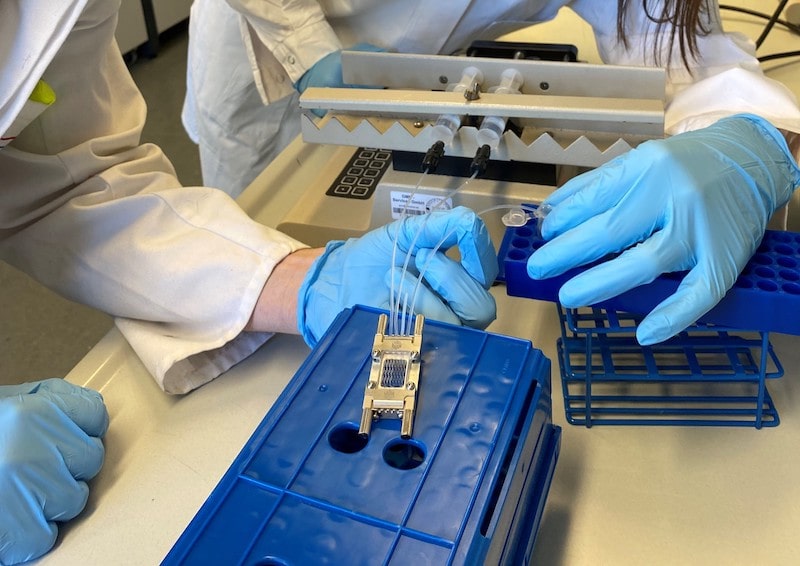 Researchers in the Department of Pharmacy at the Ludwig Maximilian University of Munich are using chips from Dolomite Microfluidics to reliably and consistently produce monodisperse particles for targeted delivery of small interfering RNA (siRNA) therapeutics. This microfluidic encapsulation technology is ideal for gene silencing applications in cancer immunology and inflammatory diseases, where siRNA can potentially be used to down-regulate genes associated with these pathologies....
Researchers in the Department of Pharmacy at the Ludwig Maximilian University of Munich are using chips from Dolomite Microfluidics to reliably and consistently produce monodisperse particles for targeted delivery of small interfering RNA (siRNA) therapeutics. This microfluidic encapsulation technology is ideal for gene silencing applications in cancer immunology and inflammatory diseases, where siRNA can potentially be used to down-regulate genes associated with these pathologies....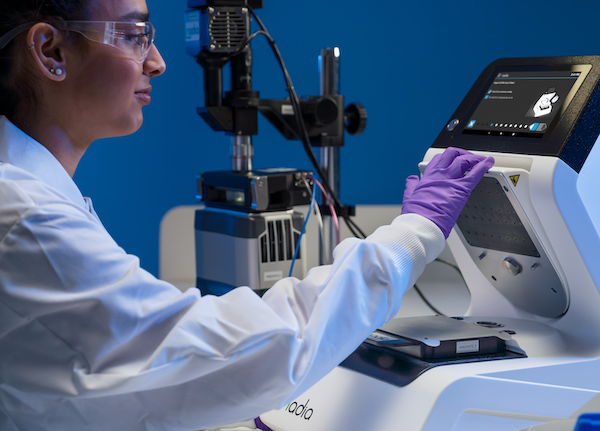 Dolomite Bio, a leading provider of high throughput single cell technology, and S2 Genomics, a manufacturer and provider of automated tissue sample preparation systems, announce a collaboration to combine S2 Genomics’ Singulator™ capabilities with Dolomite Bio’s single cell Nadia platform. Achieving high-quality single cell data from solid tissues relies on consistent and reproducible cell or nuclei dissociation procedures....
Dolomite Bio, a leading provider of high throughput single cell technology, and S2 Genomics, a manufacturer and provider of automated tissue sample preparation systems, announce a collaboration to combine S2 Genomics’ Singulator™ capabilities with Dolomite Bio’s single cell Nadia platform. Achieving high-quality single cell data from solid tissues relies on consistent and reproducible cell or nuclei dissociation procedures....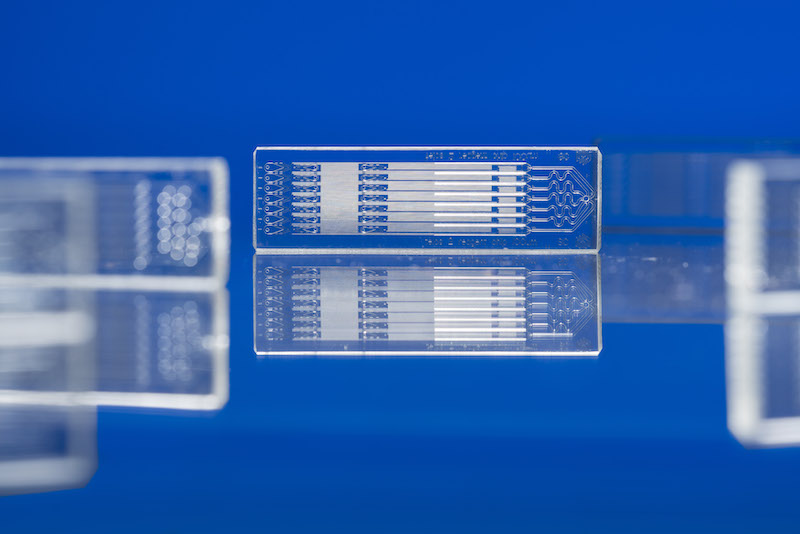 Dolomite Microfluidics has launched a number of new microfluidic chip options for its innovative Telos® system. The expanded range of high quality glass chips is intended to open up a number of new applications for the high-throughput Telos platform, providing a genuinely scalable option for droplet, particle and flow product generation across a wide range of industries....
Dolomite Microfluidics has launched a number of new microfluidic chip options for its innovative Telos® system. The expanded range of high quality glass chips is intended to open up a number of new applications for the high-throughput Telos platform, providing a genuinely scalable option for droplet, particle and flow product generation across a wide range of industries....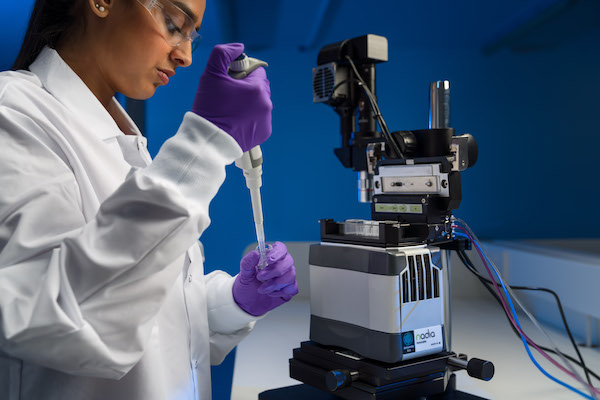 Dolomite Bio’s Nadia Instrument is helping researchers to gain a deeper understanding of motor neuron disease through the use of single nuclei RNA sequencing (sNuc-Seq).This automated, microfluidic droplet-based platform allows flexible encapsulation of up to eight samples in parallel in under 20 minutes, helping to accelerate studies and generate high quality data. Christopher Sibley, a Junior Research Fellow in the Brain Science Division at Imperial College London...
Dolomite Bio’s Nadia Instrument is helping researchers to gain a deeper understanding of motor neuron disease through the use of single nuclei RNA sequencing (sNuc-Seq).This automated, microfluidic droplet-based platform allows flexible encapsulation of up to eight samples in parallel in under 20 minutes, helping to accelerate studies and generate high quality data. Christopher Sibley, a Junior Research Fellow in the Brain Science Division at Imperial College London...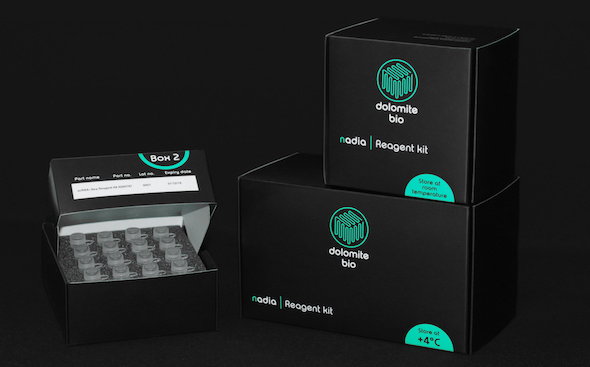 Dolomite Bio, a leading provider of cutting-edge single cell technologies, announce the launch of a new
Dolomite Bio, a leading provider of cutting-edge single cell technologies, announce the launch of a new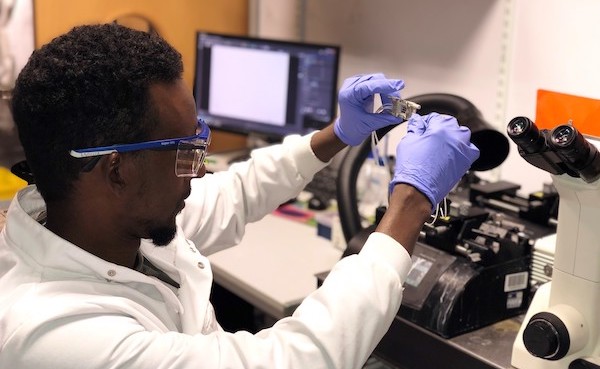 Researchers in the School of Pharmacy at the University of Nottingham have been using Dolomite Microfluidic’s chips to enhance their work on drug encapsulation and therapeutic delivery. Dr Veeren Chauhan, Research Fellow in the Advanced Materials and Healthcare Technologies (AMHT) group, working withDr Jonathan AylottandDr Amjad Selo, explained: “We have been using Dolomite chips since the end of 2017 and, since then...
Researchers in the School of Pharmacy at the University of Nottingham have been using Dolomite Microfluidic’s chips to enhance their work on drug encapsulation and therapeutic delivery. Dr Veeren Chauhan, Research Fellow in the Advanced Materials and Healthcare Technologies (AMHT) group, working withDr Jonathan AylottandDr Amjad Selo, explained: “We have been using Dolomite chips since the end of 2017 and, since then...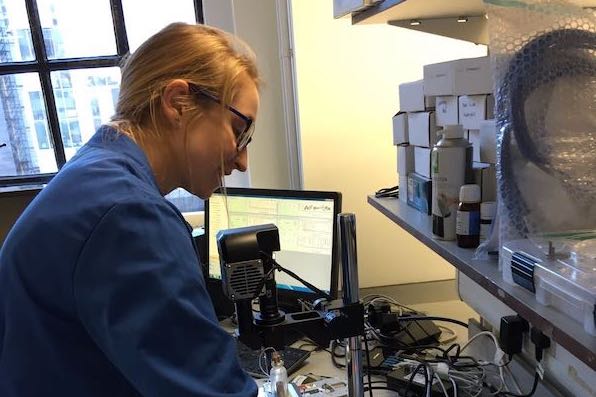 A Dolomite Microfluidics’ set-up for high throughput single cell encapsulation is helping researchers at the Department of Medicine at Imperial College, London, to develop novel liposomal formulations for RNA vaccines targeting diseases such as HIV, influenza, rabies and chlamydia. Anna Blakney, Post-Doctoral Research Fellow, explained: “Our focus is on vaccine delivery, in particular liposomal formulations for RNA vaccines...
A Dolomite Microfluidics’ set-up for high throughput single cell encapsulation is helping researchers at the Department of Medicine at Imperial College, London, to develop novel liposomal formulations for RNA vaccines targeting diseases such as HIV, influenza, rabies and chlamydia. Anna Blakney, Post-Doctoral Research Fellow, explained: “Our focus is on vaccine delivery, in particular liposomal formulations for RNA vaccines...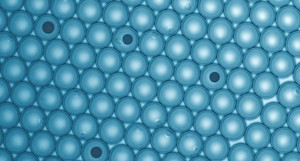 Dolomite Bio, part of the Blacktrace group, is helping to drive forward the single cell genomics revolution. Single cell analysis promises to transform drug discovery and disease research, enabling scientists to investigate cell diversity and quantify gene expression at the cellular level. This up and coming market sector is forecast to be worth $5.9bn by 2025*, with revenue growth driven by an increasing demand for...
Dolomite Bio, part of the Blacktrace group, is helping to drive forward the single cell genomics revolution. Single cell analysis promises to transform drug discovery and disease research, enabling scientists to investigate cell diversity and quantify gene expression at the cellular level. This up and coming market sector is forecast to be worth $5.9bn by 2025*, with revenue growth driven by an increasing demand for...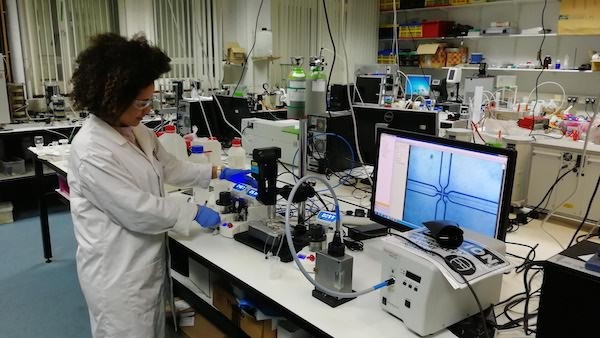 Researchers at the University of Cambridge are using microencapsulation technologies developed by Dolomite Microfluidics to develop self-healing construction materials. As highlighted in recent BBC News broadcasts, the Department of Engineering’s Geotechnical and Environmental Research Group is developing microcapsules containing ‘healing’ agents – such as minerals, epoxy or polyurethane – which can be...
Researchers at the University of Cambridge are using microencapsulation technologies developed by Dolomite Microfluidics to develop self-healing construction materials. As highlighted in recent BBC News broadcasts, the Department of Engineering’s Geotechnical and Environmental Research Group is developing microcapsules containing ‘healing’ agents – such as minerals, epoxy or polyurethane – which can be... and PhD student Matt Grasso (R) copy.jpg) Researchers in the Department of Plant Biology at the University of Vermont are taking advantage of the ease of use and reproducibility of Dolomite Microfluidics’ microfluidic droplet system and glass junction chips to enhance the study of biomechanics. “Sophisticated tools are now available for the investigation of the genetic structure of plants and subcellular processes, but hardly any exist for studying plant biomechanics at the cellular level,” commented Associate Professor Philip M. Lintilhac....
Researchers in the Department of Plant Biology at the University of Vermont are taking advantage of the ease of use and reproducibility of Dolomite Microfluidics’ microfluidic droplet system and glass junction chips to enhance the study of biomechanics. “Sophisticated tools are now available for the investigation of the genetic structure of plants and subcellular processes, but hardly any exist for studying plant biomechanics at the cellular level,” commented Associate Professor Philip M. Lintilhac....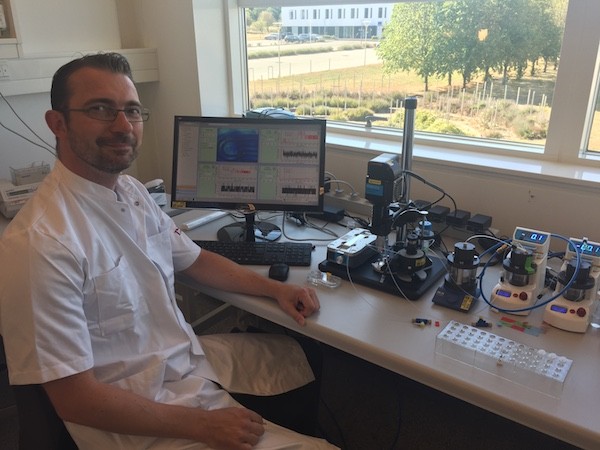 A Dolomite Bio system is helping researchers in the Department of Molecular Medicine at Aarhus University Hospital in Denmark to explore the potential of single cell RNA sequencing for personalized treatment of bladder cancer. Associate Professor Iver Nordentoft explained: “Our focus is on translational research to obtain a deeper understanding of bladder cancer....
A Dolomite Bio system is helping researchers in the Department of Molecular Medicine at Aarhus University Hospital in Denmark to explore the potential of single cell RNA sequencing for personalized treatment of bladder cancer. Associate Professor Iver Nordentoft explained: “Our focus is on translational research to obtain a deeper understanding of bladder cancer....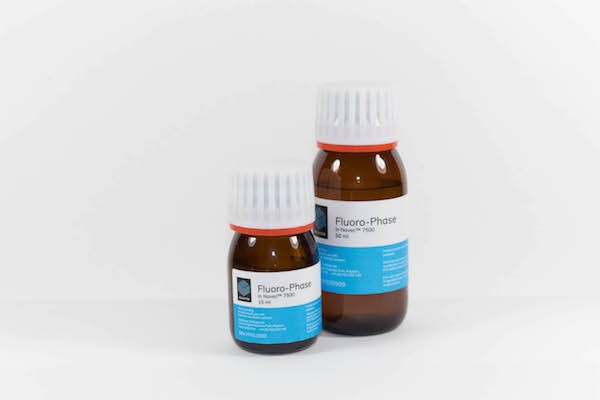 Dolomite Microfluidics, part of the Blacktrace Group, is delighted to launch its new Pickering emulsion stabilizer Fluoro-Phase, a fluorinated continuous phase that has been specially formulated to stabilize aqueous droplets in microfluidic systems.
Dolomite Microfluidics, part of the Blacktrace Group, is delighted to launch its new Pickering emulsion stabilizer Fluoro-Phase, a fluorinated continuous phase that has been specially formulated to stabilize aqueous droplets in microfluidic systems. 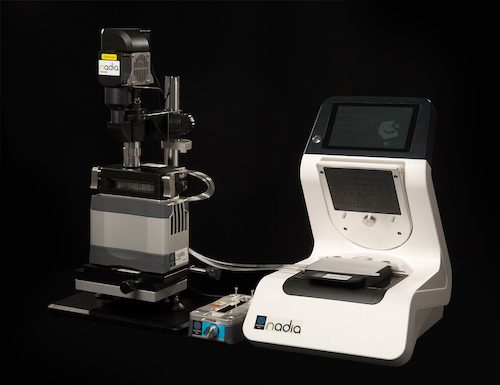 The Nadia instrument is a touchscreen-controlled, droplet-based microfluidic platform for single cell research, combining superior microfluidics, automated temperature control and gentle cell/bead agitation to offer a single compact instrument that delivers highly precise and reliable results.
The Nadia instrument is a touchscreen-controlled, droplet-based microfluidic platform for single cell research, combining superior microfluidics, automated temperature control and gentle cell/bead agitation to offer a single compact instrument that delivers highly precise and reliable results. Anu explained the idea behind their entertaining and creative video: “A few months before the conference, we realized that we both had an interest in hip-hop and rap, as well as playing around with music-making software. We thought a rap parody explaining our research would be a great way to integrate our work with our love of music....
Anu explained the idea behind their entertaining and creative video: “A few months before the conference, we realized that we both had an interest in hip-hop and rap, as well as playing around with music-making software. We thought a rap parody explaining our research would be a great way to integrate our work with our love of music....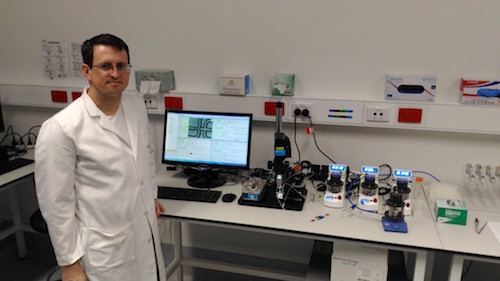 Mark Ziemann, research fellow and next generation sequencing specialist, explained: “Previously, we’ve run bulk RNA sequencing on these animal models, and discovered a lot of variability coming from different cell types in the kidney. Single cell RNA-Seq will help us disentangle the major cell types involved in the disease....
Mark Ziemann, research fellow and next generation sequencing specialist, explained: “Previously, we’ve run bulk RNA sequencing on these animal models, and discovered a lot of variability coming from different cell types in the kidney. Single cell RNA-Seq will help us disentangle the major cell types involved in the disease....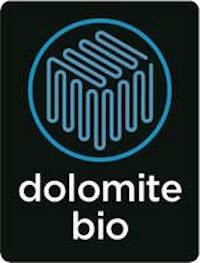 The single nucleus RNA-Seq chip – based on the company’s established scRNA-Seq chip – is designed to produce smaller droplets, allowing straightforward, low cost profiling of thousands of nuclei. DroNc-Seq is a novel single cell RNA-Seq methodology which uses isolated nuclei instead of whole cells....
The single nucleus RNA-Seq chip – based on the company’s established scRNA-Seq chip – is designed to produce smaller droplets, allowing straightforward, low cost profiling of thousands of nuclei. DroNc-Seq is a novel single cell RNA-Seq methodology which uses isolated nuclei instead of whole cells....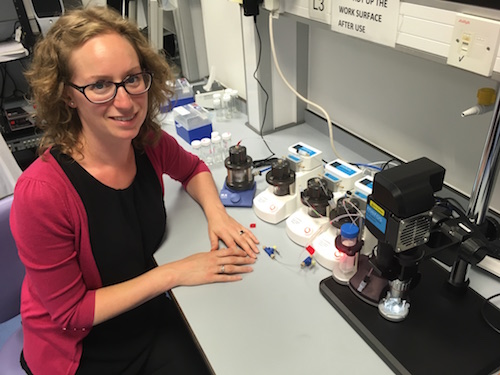 In partnership with Tommy’s National Centre for Miscarriage Research, scientists at the University of Warwick are currently running preliminary studies using the technique, as Emma Lucas, a postdoctoral researcher in Professor Jan Brosens’ laboratory, explained...
In partnership with Tommy’s National Centre for Miscarriage Research, scientists at the University of Warwick are currently running preliminary studies using the technique, as Emma Lucas, a postdoctoral researcher in Professor Jan Brosens’ laboratory, explained... Professor Wheeler is the author of more than 100 peer-reviewed publications, and has been the Canada Research Chair of Bioanalytical Chemistry at the University of Toronto since 2005. He will receive a certificate, a $2,000 prize and the opportunity to present a short lecture at the 2017 MicroTAS conference, which runs from the 22nd to the 26th of October at the Savannah International Trade & Convention Center in Georgia, USA. All registered MicroTAS participants are invited...
Professor Wheeler is the author of more than 100 peer-reviewed publications, and has been the Canada Research Chair of Bioanalytical Chemistry at the University of Toronto since 2005. He will receive a certificate, a $2,000 prize and the opportunity to present a short lecture at the 2017 MicroTAS conference, which runs from the 22nd to the 26th of October at the Savannah International Trade & Convention Center in Georgia, USA. All registered MicroTAS participants are invited...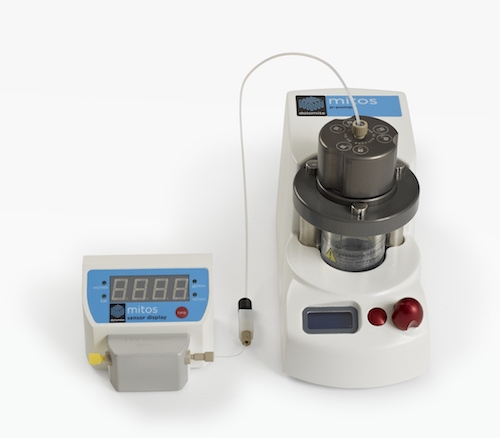 Designed specifically for microfluidic systems, this key enabling technology is ideally suited for the production of highly monodisperse droplets in a diverse array of scientific sectors, such as food, cosmetics, agrochemicals, pharma, diagnostics, drug delivery and biomedicine....
Designed specifically for microfluidic systems, this key enabling technology is ideally suited for the production of highly monodisperse droplets in a diverse array of scientific sectors, such as food, cosmetics, agrochemicals, pharma, diagnostics, drug delivery and biomedicine....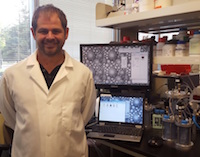 Jeff Henise, Director of Process Development at ProLynx, explained: “Traditional polymer encapsulation delivery systems rely on diffusion or breakdown of the polymer to release their payload. In contrast, our drug delivery system offers controlled release using self-cleaving linkers to attach the drug to hydrogel microsphere carriers....
Jeff Henise, Director of Process Development at ProLynx, explained: “Traditional polymer encapsulation delivery systems rely on diffusion or breakdown of the polymer to release their payload. In contrast, our drug delivery system offers controlled release using self-cleaving linkers to attach the drug to hydrogel microsphere carriers....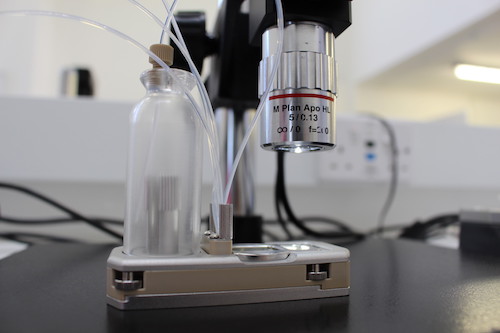 Ideal for profiling natively-paired T-cell receptors (TCRs), this compact, flexible and modular system can process up to 300,000 cells in 15 minutes. T-cells play a vital role in the destruction and subsequent removal of pathogens in the adaptive immune response....
Ideal for profiling natively-paired T-cell receptors (TCRs), this compact, flexible and modular system can process up to 300,000 cells in 15 minutes. T-cells play a vital role in the destruction and subsequent removal of pathogens in the adaptive immune response....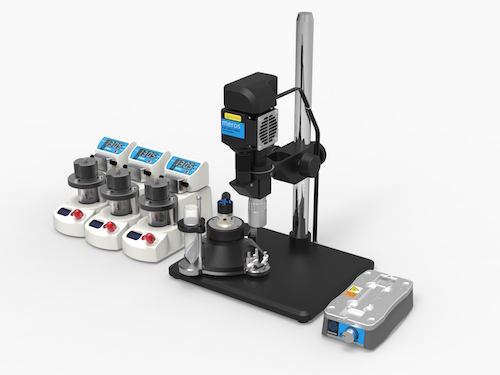 This option enables straightforward, gentle introduction of evenly distributed mRNA capture beads into the company’s RNA-Seq System for individual encapsulation of cells. The Injection Valve and Sample Loop is a complete module allowing barcoded mRNA capture beads in lysis buffer to be efficiently flowed through the RNA-Seq Chip without clustering or blockages....
This option enables straightforward, gentle introduction of evenly distributed mRNA capture beads into the company’s RNA-Seq System for individual encapsulation of cells. The Injection Valve and Sample Loop is a complete module allowing barcoded mRNA capture beads in lysis buffer to be efficiently flowed through the RNA-Seq Chip without clustering or blockages....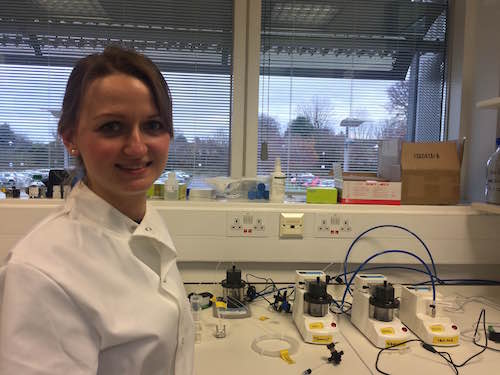 Karolina Nowakowska, a PhD student at The Institute of Cancer Research, explained: “Our team is focused on studying treatment resistance in prostate cancer patients, looking at the biochemical mechanisms responsible. My project is based on using single cell sequencing to help identify the specific genes which lead to treatment resistance...
Karolina Nowakowska, a PhD student at The Institute of Cancer Research, explained: “Our team is focused on studying treatment resistance in prostate cancer patients, looking at the biochemical mechanisms responsible. My project is based on using single cell sequencing to help identify the specific genes which lead to treatment resistance...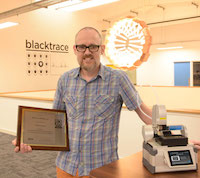 This innovative system – the first commercially available 3D printer for fluidically-sealed devices – offers rapid, straightforward and reliable prototyping of microfluidic components, including chips, manifolds, connectors and other devices. Using cyclic olefin copolymer (COC) makes it easy and affordable to 3D print devices for almost any application....
This innovative system – the first commercially available 3D printer for fluidically-sealed devices – offers rapid, straightforward and reliable prototyping of microfluidic components, including chips, manifolds, connectors and other devices. Using cyclic olefin copolymer (COC) makes it easy and affordable to 3D print devices for almost any application....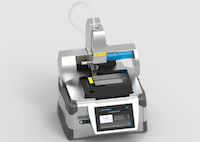 Mindy Simon, postdoctoral research associate, explained: “Carbon capture is important for power generation and other heavy industries, reducing the amount of carbon dioxide released into the atmosphere. Here at LLNL, we have developed an innovative microcapsule technology which consists of a highly permeable polymer shell surrounding a CO2-absorbing liquid core....
Mindy Simon, postdoctoral research associate, explained: “Carbon capture is important for power generation and other heavy industries, reducing the amount of carbon dioxide released into the atmosphere. Here at LLNL, we have developed an innovative microcapsule technology which consists of a highly permeable polymer shell surrounding a CO2-absorbing liquid core....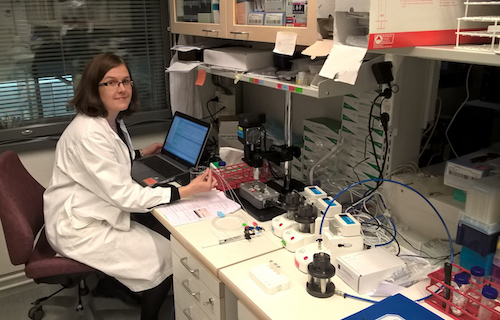 Focusing on gastrointestinal conditions – such as coeliac disease and inflammatory bowel disease – the Molecular Genetics of Immunological Diseases group is using the system to study T-cell activation and response at the single cell level...
Focusing on gastrointestinal conditions – such as coeliac disease and inflammatory bowel disease – the Molecular Genetics of Immunological Diseases group is using the system to study T-cell activation and response at the single cell level...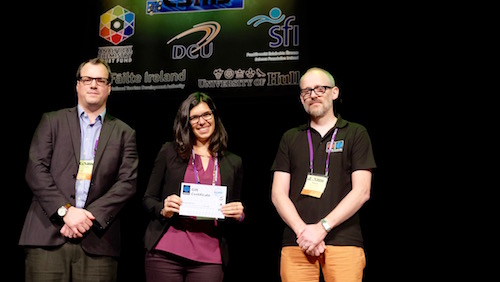 The annual competition – run by microfluidics specialist Dolomite and Lab on a Chip, and supported by the Chemical and Biological Microsystems Society – embraces the lighter side of life sciences and chemistry, while giving delegates a chance to win €2,500 worth of Dolomite microfluidics equipment. Enrica's winning entry was a recipe for a 'Micropillars Chocolate Cake', providing an imaginative yet informative explanation of how micropillar electrodes...
The annual competition – run by microfluidics specialist Dolomite and Lab on a Chip, and supported by the Chemical and Biological Microsystems Society – embraces the lighter side of life sciences and chemistry, while giving delegates a chance to win €2,500 worth of Dolomite microfluidics equipment. Enrica's winning entry was a recipe for a 'Micropillars Chocolate Cake', providing an imaginative yet informative explanation of how micropillar electrodes...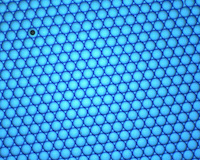 This biology-focused brand – spun out from sister company Dolomite Microfluidics – is dedicated to the development of innovative products for high throughput single cell research. Dolomite Bio specializes in microfluidic droplet applications, offering a range of microfluidic systems and individual modules, as well as control software and reagents, for cell biology applications. Its core droplet technology is...
This biology-focused brand – spun out from sister company Dolomite Microfluidics – is dedicated to the development of innovative products for high throughput single cell research. Dolomite Bio specializes in microfluidic droplet applications, offering a range of microfluidic systems and individual modules, as well as control software and reagents, for cell biology applications. Its core droplet technology is...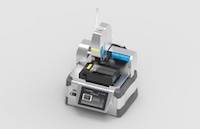 The first commercially available 3D printer for fluidically-sealed devices, it offers rapid, easy and reliable printing from as little as $1 per device. Using FDA-approved, robust and translucent cyclic olefin copolymer (COC), this makes it easy and affordable to 3D print devices for almost any application. The Fluidic Factory is designed for ultimate ease of use, enabling rapid prototyping of fluidically-sealed...
The first commercially available 3D printer for fluidically-sealed devices, it offers rapid, easy and reliable printing from as little as $1 per device. Using FDA-approved, robust and translucent cyclic olefin copolymer (COC), this makes it easy and affordable to 3D print devices for almost any application. The Fluidic Factory is designed for ultimate ease of use, enabling rapid prototyping of fluidically-sealed...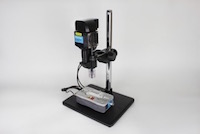 This high resolution imaging system allows users to conveniently monitor high speed microfluidic events, such as droplet formation, using a built-in stage. The Meros High Speed Digital Microscope features high magnification optics and a zoom lens to ensure that millimetre to micrometre scale features can be visualised clearly, with the added benefit of an extra-long working distance. Coupled with a high speed USB 3.0 camera...
This high resolution imaging system allows users to conveniently monitor high speed microfluidic events, such as droplet formation, using a built-in stage. The Meros High Speed Digital Microscope features high magnification optics and a zoom lens to ensure that millimetre to micrometre scale features can be visualised clearly, with the added benefit of an extra-long working distance. Coupled with a high speed USB 3.0 camera...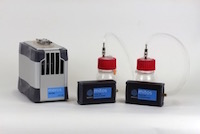 She explained: “My work is mainly focused on using different polymers, particularly PLGA – poly(lactic-co-glycolic acid) – for drug encapsulation, generating monodisperse particles for further investigation. I use a Dolomite system for this purpose, preparing particles on an almost daily basis, and find it very straightforward.”
She explained: “My work is mainly focused on using different polymers, particularly PLGA – poly(lactic-co-glycolic acid) – for drug encapsulation, generating monodisperse particles for further investigation. I use a Dolomite system for this purpose, preparing particles on an almost daily basis, and find it very straightforward.” 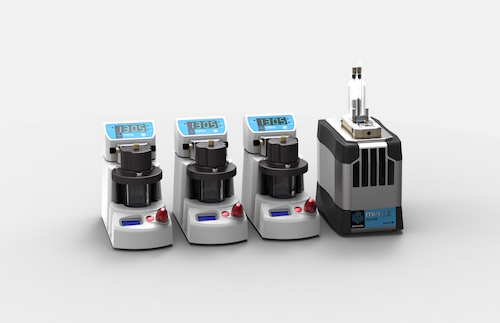 This user-friendly, high throughput system offers simple, straightforward encapsulation of single cells, DNA and/or functionalised beads in high precision, identically-sized picolitre droplets. The launch of the µEncapsulator 1 System is set to benefit scientists working on an array of applications, including characterisation of natively paired T cell receptors, isolation of monoclonal antibody coding sequences from blood samples...
This user-friendly, high throughput system offers simple, straightforward encapsulation of single cells, DNA and/or functionalised beads in high precision, identically-sized picolitre droplets. The launch of the µEncapsulator 1 System is set to benefit scientists working on an array of applications, including characterisation of natively paired T cell receptors, isolation of monoclonal antibody coding sequences from blood samples...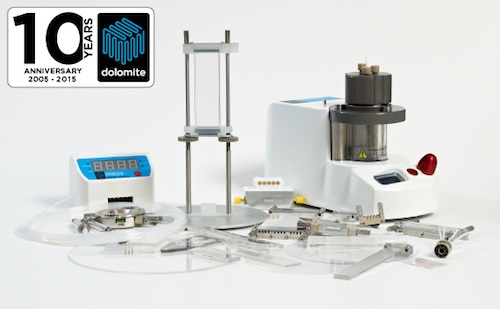 The company, based in Royston, UK, was the world’s first microfluidic application centre, and has gone from strength to strength since its formation in 2005, opening offices in the USA, Japan, India and Brazil, and establishing a global distributor network. Today, it serves many thousands of customers in over 50 countries around the world, working in fields as diverse as academia, biotechnology, drug discovery, food and cosmetics...
The company, based in Royston, UK, was the world’s first microfluidic application centre, and has gone from strength to strength since its formation in 2005, opening offices in the USA, Japan, India and Brazil, and establishing a global distributor network. Today, it serves many thousands of customers in over 50 countries around the world, working in fields as diverse as academia, biotechnology, drug discovery, food and cosmetics...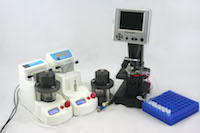 Compact and robust, this easy-to-use system enables tool-free assembly of glass, quartz or polymer resealable chips, allowing the user to deposit reagents, sensors, biosensors or cells onto the chip base layer for exposure to the fluid stream. The modular, flexible system comprises a Resealable Chip Interface – allowing up to...
Compact and robust, this easy-to-use system enables tool-free assembly of glass, quartz or polymer resealable chips, allowing the user to deposit reagents, sensors, biosensors or cells onto the chip base layer for exposure to the fluid stream. The modular, flexible system comprises a Resealable Chip Interface – allowing up to...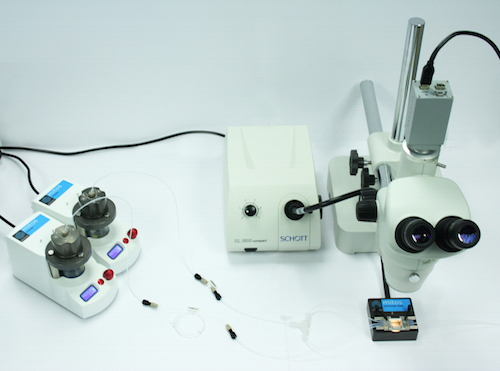 Built around Dolomite’s pulseless pressure pumps, connectors and chips, Micro Droplet Systems benefit a wide range of applications, including compartmentalized chemistry, high throughput experiments, polymeric microspheres and the production of emulsions. They are also ideal for droplet-based nanoparticle synthesis, offering tight control over reagent loading and mixing, generating nanoparticles with excellent dispersity and...
Built around Dolomite’s pulseless pressure pumps, connectors and chips, Micro Droplet Systems benefit a wide range of applications, including compartmentalized chemistry, high throughput experiments, polymeric microspheres and the production of emulsions. They are also ideal for droplet-based nanoparticle synthesis, offering tight control over reagent loading and mixing, generating nanoparticles with excellent dispersity and...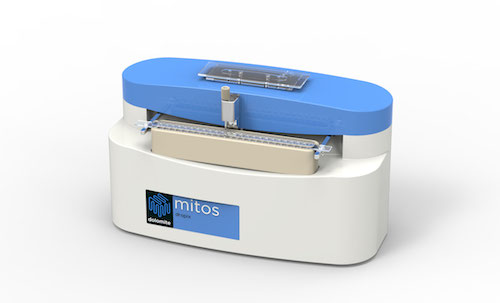 The Productizing Science Competition, jointly organized by Dolomite and Lab on a Chip, opens on the 1st of October 2014, aiming to bridge the gap between scientific innovation and commercial success by turning early stage technologies into market-leading products. This exciting competition offers the opportunity to take advantage of Dolomite’s invaluable commercial expertise and in-depth understanding of the international microfluidics market to...
The Productizing Science Competition, jointly organized by Dolomite and Lab on a Chip, opens on the 1st of October 2014, aiming to bridge the gap between scientific innovation and commercial success by turning early stage technologies into market-leading products. This exciting competition offers the opportunity to take advantage of Dolomite’s invaluable commercial expertise and in-depth understanding of the international microfluidics market to...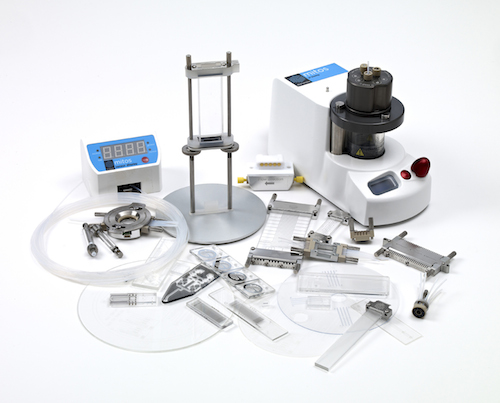 Now in its 18th year, MicroTAS (the International Conference on Miniaturized Systems for Chemistry and Life Sciences) runs from the 26th to 30th of October in San Antonio, Texas. This exciting competition will give anyone registered for the event the opportunity to win Dolomite microfluidics equipment worth $2,500 by creating a scientific or educational short film on micro- or nanofluidics. Videos can be fun, artistic, surprising or just...
Now in its 18th year, MicroTAS (the International Conference on Miniaturized Systems for Chemistry and Life Sciences) runs from the 26th to 30th of October in San Antonio, Texas. This exciting competition will give anyone registered for the event the opportunity to win Dolomite microfluidics equipment worth $2,500 by creating a scientific or educational short film on micro- or nanofluidics. Videos can be fun, artistic, surprising or just...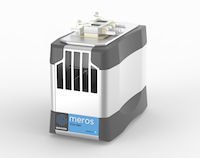 The first module in the new Meros range of plug-and-play microfluidic products, the compact TCU-100 offers advanced temperature control from 1 to 100°C for microfluidic chips, microscope slides and other third party devices. Just 11cm (4 ¼ inches) wide, the chemically resistant, robust and reliable TCU-100 combines ultimate ease of use and affordability for a wide range of biological and chemical applications, including cell analysis...
The first module in the new Meros range of plug-and-play microfluidic products, the compact TCU-100 offers advanced temperature control from 1 to 100°C for microfluidic chips, microscope slides and other third party devices. Just 11cm (4 ¼ inches) wide, the chemically resistant, robust and reliable TCU-100 combines ultimate ease of use and affordability for a wide range of biological and chemical applications, including cell analysis... It meets the needs of microfluidic applications that benefit from an advanced capability; the ability to combine pairs of droplets in a controlled manner. Applications include automated screening experiments (sample/screen pairing), dose-response testing (sample/diluent pairing to deliver to screen) concentration/stoichiometric testing (variation of mix ratio) and combinatorial chemistry (AnBn reagent pairings)
It meets the needs of microfluidic applications that benefit from an advanced capability; the ability to combine pairs of droplets in a controlled manner. Applications include automated screening experiments (sample/screen pairing), dose-response testing (sample/diluent pairing to deliver to screen) concentration/stoichiometric testing (variation of mix ratio) and combinatorial chemistry (AnBn reagent pairings) It enables unrivalled reproducibility and selectivity of droplet size of both outer and inner phases with either oil-in-water-in-oil or water-in-oil-in-water droplets. The Double Emulsion System is highly beneficial to applications in the food industry, in pharmaceuticals and cosmetics that use double emulsions as delivery vehicles or encapsulation solutions for various active ingredients, or more generally in paints and coatings.
It enables unrivalled reproducibility and selectivity of droplet size of both outer and inner phases with either oil-in-water-in-oil or water-in-oil-in-water droplets. The Double Emulsion System is highly beneficial to applications in the food industry, in pharmaceuticals and cosmetics that use double emulsions as delivery vehicles or encapsulation solutions for various active ingredients, or more generally in paints and coatings.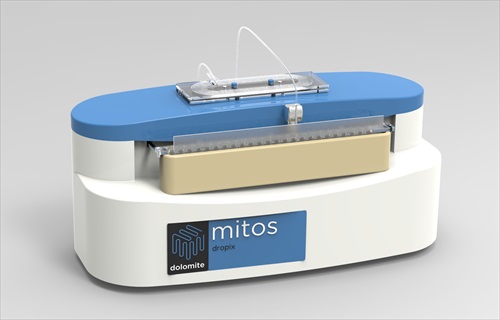
 The two companies join forces in the areas of product design and development leveraging specialist capabilities of each corporation, with design and hardware based activities carried out by Dolomite, and polymer process-based manufacturing carried out by Epigem. Epigem, a leading polymer micro engineering company, develops and manufactures multifunctional microfluidic devices (especially for instrument OEMs) both in low and high volume which Dolomite will distribute as part of its standard product range...
The two companies join forces in the areas of product design and development leveraging specialist capabilities of each corporation, with design and hardware based activities carried out by Dolomite, and polymer process-based manufacturing carried out by Epigem. Epigem, a leading polymer micro engineering company, develops and manufactures multifunctional microfluidic devices (especially for instrument OEMs) both in low and high volume which Dolomite will distribute as part of its standard product range... As part of Dolomite’s new OEM modules and components, the compact low power pumps are extremely small in size, ideal for easy integration into custom systems and portable instruments where space is at a premium. The range includes two EO Pump Cores, Basic and Bubble Free, as well as an EO Pump Open Interface with 1/4 - 28 outlet offering increased user flexibility.
As part of Dolomite’s new OEM modules and components, the compact low power pumps are extremely small in size, ideal for easy integration into custom systems and portable instruments where space is at a premium. The range includes two EO Pump Cores, Basic and Bubble Free, as well as an EO Pump Open Interface with 1/4 - 28 outlet offering increased user flexibility.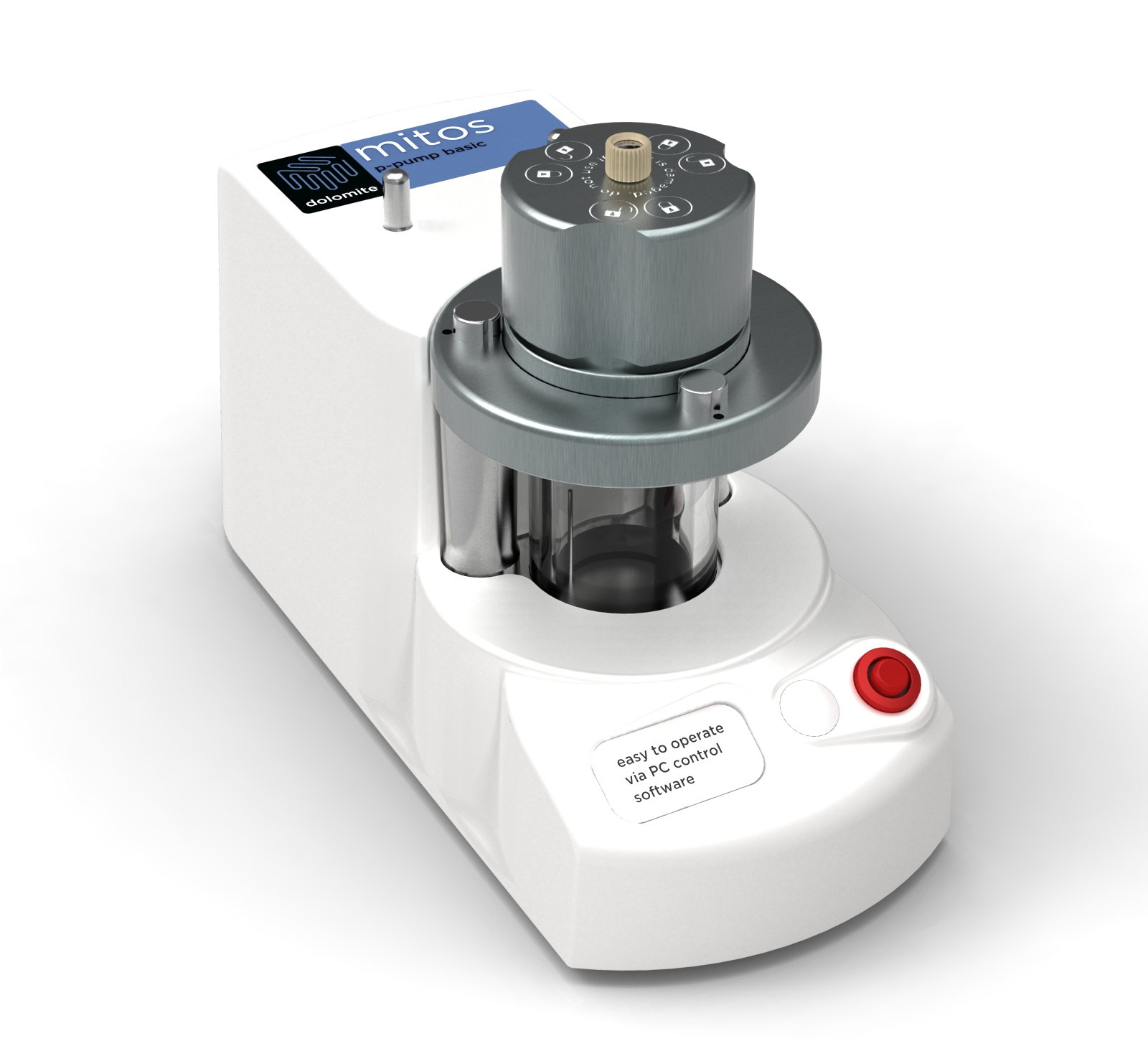 Following the global success of the Mitos P-Pump, microfluidics expert Dolomite has launched the Mitos P-Pump Basic offering a flexible and cost effective solution for microfluidic systems operating from nl/min to ml/min...
Following the global success of the Mitos P-Pump, microfluidics expert Dolomite has launched the Mitos P-Pump Basic offering a flexible and cost effective solution for microfluidic systems operating from nl/min to ml/min...